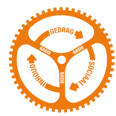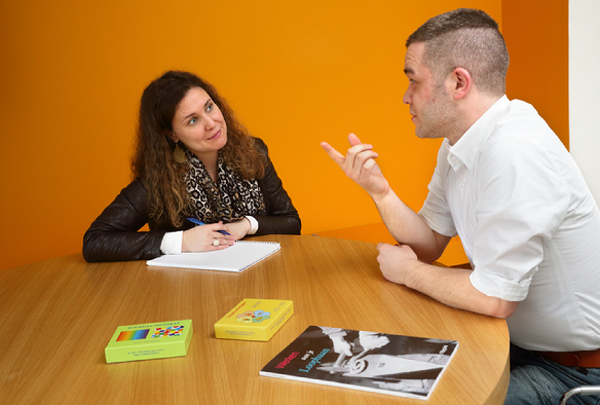Information and inspiration for your own professional and career development.
Here, you can familiarize yourself with where you are now, and how you can develop further, or think about what the next step might be. In this way, you invest in yourself and in your own professionalism. Thus, you are - and remain - versatile both inside or outside the university.
In addition to what is being offered on this site, the advisers at the Career Development Centre would be more than willing to have a personal advisory meeting with you to discuss the possible steps to move forward in your career or development.
Your personal development journey

What am I good at?
What do I think is important?
Where am I in my career?
What ambitions do I have for the future?
What other jobs do I enjoy?
It is good to occasionally consciously reflect on where you are in your work. This includes taking a look at what you are good at, how you further develop your talents and where your ambitions lie. This can be done by asking for feedback from your manager and colleagues, participating in a training course that focuses on career orientation, testing yourself in a scan or an assessment, examining other positions within the university or looking behind the scenes at another job or organization.
- Feedback
Where do your talents lie and which of your competencies are suitable for further development? A useful way of gaining a clearer idea of this is to ask your manager, colleagues, employees, or customers for feedback. This could be in relation to the competencies that form part of your current position, but also to a possible next step in your career.
Use the digital feedback instrument to ask other people to give feedback on competencies chosen by you. Log in to the UFO website to find the digital feedback instrument, together with an instruction guide in the menu.
Exploratory interview
Do you need advice on where you now stand in terms of your career and on the development opportunities available to you? Make an appointment for an exploratory interview. The purpose of the interview is to look at what exactly you are looking for and to advise you on the appropriate options.
If you decide, post-intake, to take part in a career guidance track or training course for example, or to take coaching, this will always be in consultation with your manager – this is because it may take time or incur costs.
- Scans & assessment
If you would like a clearer picture of your own abilities and ambitions, then the abilities and ambitions scan could be helpful to you. The scan throws light on your options and opportunities. You can then discuss the results with your manager or advisors at the Career Development Centre (CDC).
If you would like to find out the challenges and lessons that lie in your current or possible future position, then the development assessment will be a useful tool for you. The assessment provides pointers towards the direction in which you could proceed and towards how you might work on your personal and professional development. You will receive a report with an assessment and advice.
The scans and assessments are not generally free of charge. Talk to your manager to find out whether a scan or an assessment would be appropriate in your exploration of your career options. For advice on which instrument would be most suitable to your situation, get in touch with an advisor at the Career Development Centre.
- Capacity and ambition scan
For whom
UT employees, who want to gain more insight into their own capacities, ambition(s) and (career) opportunities.
Data
Ongoing (by appointment)
Purpose
This scan offers insight and a reliable perspective on one's own qualities, ambitions and (career) opportunities. Participants are supported by a specialized, experienced (career) psychologist.
Costs
The scan is free of charge. Participation requires permission from the immediate supervisor..
Working method
Participation in the scan takes place via an intake at the CDC. The scan starts with determining the questions to be examined. If necessary, additional valid tests are used. The execution of the scan leads to the mapping of ambitions and talents and is supported by a report. The advice to each participant is to discuss the report with the manager and/or HR or CDC advisor but the participant always decides on this 'as owner'.
Guidance
Pascal de Wijngaert, experienced psychologist.
Duration and time
1 half-day (4 hours) implementation and a few hours preparation time; this depends on the questions to be examined and the (possible) use of digital questionnaires.
Application
At Career Development Centre, by relevant HR advisor and/or direct supervisor.
Location
De Wijngaert HR Dienstverlening, located at Hengelosestraat 511.
Information
Career Development Centre HR
Telefoon: 053-489 3636
E-mail: cdc-hr@utwente.nl - Development assessment
For whom?
Employees who want to discover where their qualities lie in the current or future (aspired) function and who want to have tools to help them develop.
Purpose
This assessment offers insight into one's own qualities and development points, related to the current or future (aspired) function. Participants are supported by an experienced and specialized (career) psychologist.
Working method
Participation in the assessment takes place via an intake at the CDC. The assessment starts by mapping out the various competencies required for the position. Using questionnaires, cognitive ability tests, practical simulations, and an interview, the employee's qualities and development opportunities are analyzed. This leads to a reliable picture of capabilities, in the form of a report with assessment and advice. The advice to each participant is to discuss the report with the manager and/or HR or CDC advisor but the participant always decides 'as owner'.
Duration and time
2 half-days (total: 8 hours) of implementation. Part of this involves filling out (personality) questionnaires that can be completed at home.
Dates
Ongoing (by appointment)
Costs
There are no costs associated with this assessment. However, permission from the manager is required for participation.
Guidance
Pascal de Wijngaert, an experienced psychologist
Office: Kennispark Twente, Capitool 50, 7521 PL Enschede
linkedIn: pascaldewijngaert
www.dewijngaert.nlInformation and registration
At the Career Development Centre, by relevant HR advisor and/or direct supervisor.
Career Development Centre HR
Telephone: 053-489 3636
E-mail: cdc-hr@utwente.nl - Talent Motivation Analysis (TMA)
Explore your talents using the Talent Motivation Analysis (TMA)
Are you keen to continue developing in your current position, or are you ready for the next step in your career? Then gaining insight into your talents and motivations is an important place to start. The University of Twente’s Career Development Centre provides assistance in the form of a Talent Motivation Analysis (TMA). Complete three steps to gain insight into your own unique talent blueprint. The results will show your strengths and what energises you.
The TMA is a tool that maps motivations and talents based on personal preferred behaviour. The analysis yields a competence profile and provides insight into development opportunities. The TMA consists of a personal intake interview and an online questionnaire, each lasting approximately one hour, followed by a personal feedback meeting lasting approximately an hour and a half.
Can’t wait to continue working on your development and gain more insight into your full talent potential? Please do not hesitate to contact the Career Development Centre for more information about the TMA.
- Shadowing days
Getting a fresh perspective can sometimes be very stimulating – this could be achieved in an exploratory conversation with a colleague, for example, or by shadowing someone in a position that interests you. It is a chance to experience the ‘reality’ of the position and the ambience of a particular working environment. Other benefits include networking opportunities, learning from others, and acquiring new experiences and insights that you can use in your own work setting.
- Test yourself
Who am I, what do I want, what am I capable of? To make any progress in your personal and professional development, an important first step is to have a good idea of your own personality, abilities, and wishes. To assist you with this, we are offering five tests that you can do at a time and place of your own choosing.
Only you will be able to see the results and they will not be stored. If you would like to keep the results, you can store them yourself at the end. Should you not do so, they will not be retained.
Digital skills tool
In an increasingly digital UT work environment, our digital skills are increasingly important. Use this Digital Skills Tool to gain more insight into your digital talents and digital development opportunities. The tool is designed as a conversation tool, which you can walk through together with your supervisor or colleagues, but is also suitable for individual use.
PLEASE NOTE: Download and also use the workbook to best understand your development needs.
Or take the 'Level up your digital skills' & 'Excel Essentials' courses on GoodHabitz
GOODHABITZ ASSESMENTS
Get To Know Yourself
- Pick a test that suits you and start right away
- Receive your results in a report
- Get started with personal tips
How can I keep my personal and professional development moving forward?
How can I perform my work even better?
Where can I find assistance in progressing my development?
How can I discuss my wishes and ambitions?
Would you like to further your development in your current specialism, or work on your personal skills? There are various ways of achieving this. One way is to take part in one of the many training courses provided by UT. Another is through the support of a mentor or coach. Careers' advice is a good way of carefully considering your wishes and ambitions, and your next steps. It is important and useful to actively discuss these matters with your manager. A good time to do this is during your annual performance appraisal.
"Investing in yourself and your own development often results in your work becoming more enjoyable and makes sure you keep moving forward."
- Training
Are you looking to enhance your professional skills or broaden your knowledge of your field?
UT believes very strongly in the development of its employees, with a view to achieving inspirational teaching, ground-breaking research, relevant innovation, and outstanding professional support. Training courses are an excellent way of boosting your current position or of preparing for your next career move. Every training course for the University’s employees can be found at the Centre for Training and Development. They have been categorised according to six themes:
- Research,
- Teaching,
- Language and communication,
- Leadership,
- Career development,
- Personal effectiveness.
There is also a specific range of options for PhD students and postdocs. Take a look at your training course options on the Centre for Training and Development website.
- Mentor & coaching
Mentor program
If you would like to work on your career or other development with the help of a senior colleague, then you should consider the mentor program. In four discussions with your mentor, you have the opportunity to examine your personal career issues. This could deal with such questions as to how to expand your network? What are the unwritten rules at UT? How can I prepare for the next step in my career? It is also a chance to spar with your colleagues during peer-to-peer review sessions.
- Extensive information about the mentor program
The mentoring program offers you, as a (junior) staff member, the opportunity to reflect on your career or on working within the university in sessions with a senior staff member.
The coupling
In this program, the mentor and mentee are linked together for one year. The aim is that they do not work in the same field or the same service department so that it is easy to talk about your current career path or work setting. The mentee may indicate a preference among the available mentors.
The program starts with a kick-off gathering, where all mentees are present and where the goals for the sessions are defined. In addition to this meeting, the mentees are invited to participate in a number of peer review sessions, so they can share their opportunities, concerns and questions with people who are in the same stage of their careers.
Coaching and supervision
After the kick-off gathering, you need to make the appointments with your mentor, with a maximum of four. In about four 90-minute talks during the course of that year, you discuss your work or career-related questions. As a mentee, you are responsible for the quality of your own specialization track. You decide (possibly together with your mentor) the learning objectives and the questions you want to answer for yourself during that year. In addition, you arrange the appointments with your mentor.
You can expect the mentors to share their experiences with you and reflect with you on your questions. This could include, for example: how to deal with conflicting interests; how to use your network in a focused manner to further your own research, or what your next career step might be. It is also possible that issues such as work-life balance, dealing with difficult colleagues, or time management will be discussed. The topics that are discussed depend on your questions.
Registering as a mentor or mentee
A mentoring program starts once a year. Our next program starts in 2025.
For the time investment, the mentor receives € 200, - Euros per session, to be used by the service department/faculty. The initiative to make the appointments and prepare the themes lies with the mentee.Registration for the mentor program as a mentor is open, and as a mentee will open soon.
If you have questions please contact cdc-hr@utwente.nl.
COACHING
Would you like to develop in the area of personal effectiveness or leadership? Or are you running into issues in your work where you feel you are not getting the best out of yourself? Coaching is a very effective and intensive way to support you in your development issues. A coach helps you distance yourself from your situation, see things from a broader perspective, and handle them. In coaching, your learning process is central. It may concern issues relating to your job or your personal development. We have various qualified coaches on offer for different questions, each with their expertise, e.g. leadership, communication, or self-assurance.
There are costs associated with a coaching process. Talk to your manager to find out together whether coaching suits your development at this time.
- Peer consultation
Peer Consultation
Would you like to continue growing as a professional and learn from and with colleagues? The Career Development Center offers peer consultation sessions for UT employees. Peer consultation is a structured form of collegial reflection, where you collaborate with colleagues to deepen your professional practices.
In a fixed group of 5 to 7 colleagues, you will work on cases or issues from your own professional experience. By reflecting together, asking questions, and sharing insights, you strengthen your professional development.
The peer consultation group begins with three guided sessions, led by an experienced internal or external facilitator. After that, the group continues independently.
You can assemble your own peer consultation group, for example, with colleagues from the same role or department. It is important that the group consists of participants with similar roles or work contexts, ensuring a shared frame of reference. This contributes to the effectiveness of the sessions. Support in forming a suitable group is, of course, also possible.
Are you interested or would you like to know more about the possibilities? Feel free to contact us!
- Careers advise
Is your job right for you, or is it time to move on?
Do you actually know where your talents, qualities, and ambitions lie?
Careers' advice can help you achieve a better understanding of who you are, what you are good at and what you are looking for from your work. The result will be concrete advice on what your next steps should be.
The process is as follows. First, the Career Development Centre conducts an intake interview. We then jointly decide on the next step. Short programmes are managed internally by the Career Development Centre advisors. For more detailed programmes, we work in partnership with various companies that specialise in career advice.
The more detailed programmes are not free of charge; you should discuss the options for embarking on one with your manager.
- Annual performance appraisal
In the annual performance appraisal you have with your manager, you look at both your performance and your development. What competencies would you like to work on in order to be able to do your current or future work more effectively? Are you in the right job? What might a suitable next step be?
Your annual interview is also a good time to talk with your manager about how the two development days that form part of the Collective Labour Agreement are to be used. You can use these days for a wide range of activities that contribute to your personal development and deployability in the context of your current or future work.
You and your manager may conclude that you would benefit from personalised advice. If so, please contact the advisors at the Career Development Centre.
360-degree feedback
The Career Development Centre offers a range of tools that can help you during discussions on your development. For example, there is a 360-degree feedback instrument (Login to the UFO website, then you will find the digital feedback tool with a manual in the menu) in which you ask for and receive feedback from everyone you work with, manage, or who manages you. In other words, the feedback is more wide-ranging than what you receive from only your own manager.
Am I ready for a new challenge?
How can I broaden my experience and horizon?
I know what I want, but how do I get there?
It is good to keep moving forward, whether it’s on a temporary project or because you are ready for the next step in your career. New work experiences in a different role or work environment broaden your perspective and provide greater clarity on your qualities and interests. Projects, internships, and work secondments are good opportunities for this. If you are looking for somewhere new to work, then it is a good idea to explore vacancies both at and outside UT and to acquire knowledge and skills in order to apply for jobs successfully.
- Going abroad
Would you like to find out what developments are taking place in your field at universities abroad and would you like to learn from them? If you are planning to go abroad, you may be eligible for a grant. Visit the Staff Mobility website to explore your funding options. If you have found a suitable grant, discuss with your manager whether a visit to an international university would be a good investment for broadening your knowledge and experience.
- Internships and work secondments
Being on an internship or secondment involves working at a different location or even with a different organisation. This could be to gain fresh knowledge for your current position or as a means of exploring possible future options.
It is a good idea to consider beforehand the purpose of your internship or secondment and where this purpose can best be served. You should discuss this with your manager or HR advisor.
The initiative for finding a suitable place in or outside UT lies with you, so you should use your own network for this. The Career Development Centre can help you find a suitable place by using its regional networks or at universities in the Netherlands.
- UT Jobs map: Explore your next step!
Are you curious to know what jobs are available at UT, or what the job requirements are? Then take a look at the UT Jobs Map. Here you can see what jobs there are at UT and whether there is something among them that you like. To give the UFO profiles a better idea of what a job entails, vacancies and old vacancies are also linked.
It is also possible to explore the various possibilities based on your competencies, under the heading Competences. If analytical ability is one of your core qualities, in which jobs does it come into its own? If you want to expand your self-insight on this first, take a look at Testjezelf.
To get a realistic picture of whether a position is right for you, a networking interview or a day's job shadowing can be useful. Feel free to contact the Career Development Centre for the possibilities. Or explore them together with your manager or HR adviser.
You can also ask for feedback on the competencies associated with the position you aspire to with a digital feedback tool, which can be found on the national UFO page. This will give you an impression of whether the requested competencies are already present or can be further developed.
Are you ready for the next step? The Job Alert will keep you informed of all vacancies at UT.
- Applying for jobs
If you are about to apply for a job at or outside UT, good preparation is essential. What constitutes a good CV? How do you write a letter that grabs the reader’s attention? What kind of questions will you get asked during a job interview? How important is social media nowadays?
The Career Development Centre will give you feedback on your letter or CV, on request. There is also a special training course for PhDs and you can check out the Career planner by Academic Transfer.
- Job vacancies
Are you ready for the next step in your career?
If so, keep a close eye on the vacancies at UT. One way to do this is to sign up for a Job Alert. You will receive an email whenever a new vacancy arises at UT.
Would you like to stay up to date regarding other vacancies? For academic positions, see Academic Transfer (or Academic position or Research Gate) and for jobs elsewhere in the region, twente.com.
"You can also contact us without a specific issue. We are happy to map out where you are now and what (career) possibilities are available."
- Contact us to share your questions.
- We schedule a personal acquaintance with one of our CDC colleagues.
- We offer a solution to your question.
Information for managers
A great conductor (and leader) is the one who just not only knows what to do, but knows how to enable his entire musician group to perform effectively. They not just create a process, but also create a condition in which the process takes place.
Our University aims to foster a talent-powered culture and attitude, where every employee can thrive. Leaders play a pivotal role in achieving this goal, and their conduct is essential.
As a leader you recognize situations that require one-on-one communication and situations that should be discussed within the whole team. And you find the right balance between these two types of communication. You lead by example. You lead by example and know how to give feedback to others. You reflect on your team’s development, considering your own role and that of your team members, so you can grow together.
To provide you as a manager with tools the Leadership Framework has been drawn up, a manual and a basis for discussion.
- Discussing individual development
You, as a leader, take the time in (one-on-one) conversations to elaborate on what the other person truly needs. You challenge them to take control of their own development and that of the team. You realise that a diverse and inclusive team is a strength and you adapt your leadership style where necessary.
Discussing development can take place in any regular conversation, at the initiative of either party. By regularly discussing development, you gain insight into the qualities and development points of the employee and you as a manager are better able to provide support in this regard.
Relevant questions are: "What qualities does an employee have that could be better used? What aspects can an employee develop in order to improve his or her performance? What are the long-term aims with regard to his or her development? What would be a good next step from an employee’s current position, at UT or elsewhere?"
As a manager, you are one of the most important discussion partners when it comes to personal development. You have a clear idea of your employees’ performance and qualities and you can provide them with valuable feedback. In addition, you are in a position to encourage and facilitate their development. Employees themselves are in control of their own development and careers. For professional support with personal development and career-related questions, you can refer your employees to the Career Development Centre. They can use the centre for an obligation-free interview and get advice on relevant steps to take and activities.
In addition to discussing individual development with the employee, it is also important to work on your own development as a manager. You have an important role in the organization and this sometimes entails major responsibilities.
Take responsibility for your behaviour and actively engage in self-reflection and evaluation on your behaviour, viewpoints and methods. You are open to change, when necessary, and actively seek feedback from your colleagues.
You create space and time for your own development and well-being. You know how to be vulnerable. You can admit to not knowing everything yourself and you truly believe that you and your team are in it together. You know your own qualities and pitfalls and actively ask for feedback to reflect and grow. By doing so you lead by example.
You are not alone in your development, discuss your wishes and needs with your own manager and/or HR advisor and feel free to contact the Career Development Center for tailor-made advice.
- The annual performance appraisal
A good time to discuss personal development is during the annual performance appraisal. During the interviews, you look not just at each employee’s performance, but also at how they wish to develop in both the short and long term. There is also room in the conversation for Recognition & Rewards and Well-being.
You are visible as a leader and you are not afraid to engage in difficult conversations and are comfortable in confronting people with their own behaviour. You evaluate the consequences of developments in an active and open way and incorporate ideas and opinions of others in your solutions. You take the time in (one-on-one) conversations to elaborate on what the other person truly needs.
To get a broader picture of the employee's development and performance, you have the option of using a 360-degree feedback instrument (Log in to the UFO website, then you will find the digital feedback tool with a manual in the menu.) This digital feedback instrument can be used by employees to ask the people he or she works with for feedback on pre-agreed competencies. The competencies in question could relate to the employee’s present university-job profile or those that belong to a possible next step. There is also room for giving open feedback in the form of tips and tops. Asking for and providing feedback can contribute to a transparent working environment in which open communication is central.
For assistance in conducting a development-based annual or other interview, you can always ask your HR advisor.
- Taking initiative for team development
As well as the development of individual employees, you are responsible for the development of your team as a whole.
Possible questions are: "What professionalisation is needed now that our services are changing? How can we make the team work together more effectively? How can we communicate better with each other in the team? How can we gain more insight into each other's talents and get to know each other better?"
Team development is important and can contribute to more efficient work and a better working atmosphere, but it is not always an easy process. As a manager, you can therefore use useful tools that you can quickly deploy yourself. There are also options for more support and longer team processes. You can contact the Career Development Centre for custom-made advice and support. Also view further information under Team development.
The world is changing rapidly and the issues in our daily routine are becoming increasingly complex. Teams are able to handle complexity well; even better than the individual. It is therefore worth investing in your team to collaborate on even better results with an enjoyable, energetic and quality-focused approach
Team development is not a one-off activity. It is a continuous process in which you continue to learn together, depending on the phase or context you are in as a team. Sometimes with a small intervention, such as introducing a day-start or taking a Good Habitz training course together. Or perhaps a retreat or development process led by a team coach. Whatever your question or need, below you will find information and inspiration on the possibilities UT offers for this.
If the answer to your question is not listed, please get in touch. We will be happy to help come up with a suitable solution for you and your team.
Themes
- Getting started with team development
What is a team? Plus how do we collaborate effectively and inspiringly?
But what exactly is a team? Especially in this day and age, when everyone is part of multiple (project) groups and teams, it is a question to consider. The ingredients for a team are: a group of no more than about 8 people, working together towards a common result and relying on one another to achieve it. Does this sound like the teams you are either in or leading? And what can you do to strengthen your team as a whole?
The model below shows the 5 factors that contribute to team effectiveness. All factors are important and there are unlimited ways in which you can develop within them — after all, there is always room for growth. As for your own teams, see how you score on the various parts. Click on each factor for more information.
If you would like to work on one or more of these factors, please contact us.
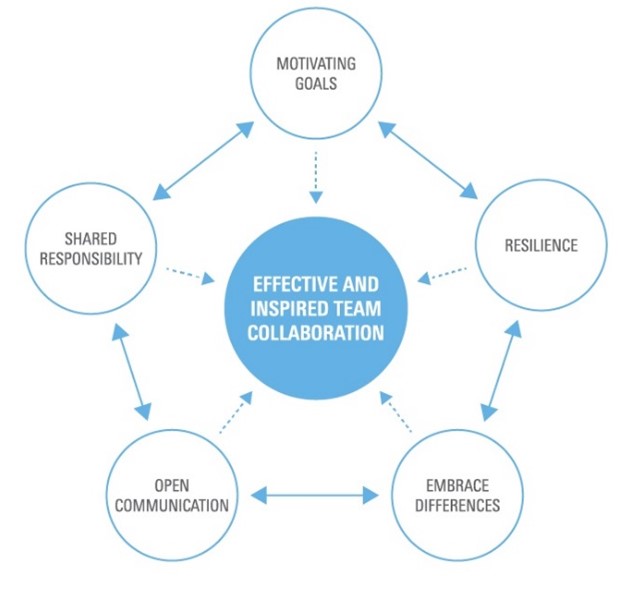
- Motivational goals
Having a clearly defined objective and striving for a concrete result is what gives the team meaning and identity. First of all, it is important that a good and workable (team) goal is in the mind of each and every team member. Everyone should be able to describe it, preferably in concrete, measurable and specific terms, and then translate it into each of their own pursuits and tasks.
Let’s keep it simple and translate our objective to practice.
Mark van der Meijde, Prof.Dr. - Shared responsibility
One of the most important things in a team is for everyone to take responsibility. Don't let your colleagues down. To do so you will, of course, need to have influence and a say in the matter. After all, it's not easy to feel responsible for something you are told to do. In practice, this is often difficult. Making decisions together is generally a mere formality. The frameworks and systems are too rigid and managers end up not letting go anyway.
People in successful teams feel a sense of ownership. They are committed to the goals and feel responsible for the results. This is because they participate in decision-making, are heard and have a say. But this can sometimes also go too far. Everyone having a say in everything might ultimately result in nothing getting done. So make sure everyone's role and contribution to the team is clear!
Thinking about a 5-year plan for your own division (using OGSM) provides insight into your position and role in the team.
The sessions helped us to clarify responsibilities and expectations, to reflect on what each of us can do to include others in our considerations.
- Open communication
Communication is important for teams, it’s the grease that keeps everything running smoothly. It is more than just conveying information. It is also about building relationships and making it clear what needs to be done. Communication is a two-way street. It is important to listen as well as speak.
Good communication is essential for the success of a team. It helps to achieve goals, solve problems and create a pleasant working atmosphere. Fortunately, communication is easy to learn as a team through e.g. a purposeful meeting structure and exchanging feedback with each other.
Exposing pain points has brought us (unexpected) insights, for example about the natural hierarchy in our team. We have experienced that juniors assign themselves a position that is (much) smaller than we, as senior staff, consider necessary.
- Embrace differences
Trust is one of the most important building blocks for an effective team. However, it is slowly won and quickly lost.
Having different skills, characters and qualities is an advantage in teams. It can lead to more creativity and innovation. But these differences can also be a source of misunderstanding and conflict. It is therefore important for each team to pay attention to each other's differences and have mutual respect. Investing in this is therefore also crucial for results and success.
We share norms & values, and work hard with a focus on improvement. Understanding value systems is highly illuminating and allows us to play to our strengths even more effectively.
- Resilience
A successful team is able to stick to its goals, set priorities and follow a plan. At the same time, it must be flexible enough to adapt to changing circumstances. These two elements, focus and flexibility, are essential to a team's success.
The trick as a team is knowing how to maintain the balance between focus and flexibility.
I see positive change in AES: two teams have enthusiastically set to work, with the tools from the sessions. There is also a broader discussion about how we inform each other (better).
- Communications
The communication offering helps the team give and receive feedback, communicate effectively, respect and understand each other and exchange knowledge.
Does this offering not address your challenge?
Then contact the CDC for customised training.“As a team, we attended MBTI training, where each team member had to complete the MBTI test. We discussed the results of this in our team. As a team, we now have a better understanding of the different types of people in our team and which communication style suits everyone best.”
Offering
- MBTI
The Myers-Briggs Type Indicator is a psychometric instrument used for the purpose of personal development, team development and organisational development.
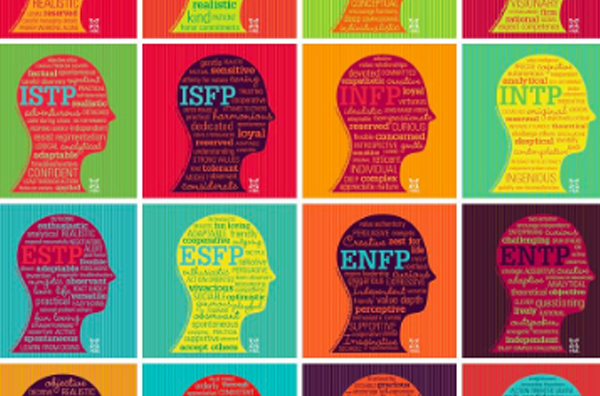
- Teamwork
How do you create a cohesive team that is more than just a group of colleagues? In this training you will come to know the characteristics of a genuine team.
- The art of feedback
- Conversation technique
With the Listening, Summarising, Questioning technique, you find out what is on your interlocutor's mind. That way, you will come up with solutions straight away and make the right decisions.

- Conflict management
Tips
- Compliment your colleagues regularly
By complimenting someone, you demonstrate that you have taken notice of their qualities and uniqueness. In doing so, you strengthen someone's positive self-image. Set a reminder for this in your diary!
- Team & Talent
The Team & Talent programme helps maximise the use of talents within the team and place tasks and responsibilities in the right places.
Does this offering not address your challenge?
Then contact the CDC for customised training.“There have been many staff changes in our department over the past year and, because of the high workload, we have not actually been able to take much time to get to know each other well. As a team we joined Goodhabitz's 'Teamwork, making a real team' training. This forced us to make time for lesser discussed topics, such as how we shape our meetings, who is responsible for what and what we believe is important to our cooperation.”
offering
- Diversity Proof Selection
If you have a vacancy in your team and would like to select a new colleague in an objective and neutral way. Then this training is a good fit for you!

- Golden
You will gain insight into your 'work personality', the way your behaviour influences others and the personal styles of others.
- Teamwork, making a genuine team
A team is much more than a group of colleagues. In this training you will learn different team roles, how to give feedback and reach consensus within a team.
- Engage 'Em
The attitude of the team also determines its success. This training will give you tools to further increase team engagement.

- Ownership
By taking this training with your team, you not only develop ownership but also motivation and self-confidence!
- The Feedback Game
With the Feedback Game, you can gain insight into your own qualities and those of your colleagues. It can also be used to discuss the qualities of a team.

- Talent development
People who are able to use their talents are proven to be more productive and happier. Bring out the best in your people by recognising, acknowledging, and developing their talents!

Tips
- The 9 qualities of effective teams
Success does not come out of the blue. The same applies when it comes to teams. A number of qualities are present in the most successful teams. These are mutually reinforcing. Below are the 9 qualities. See to what extent they are present in your team.
- Hybrid working
Hybrid work helps you and your team collaborate with each other and stay engaged without being in the same room together.
Does this offering not address your challenge?
Then contact the CDC for customised training.“Within our department, the workload was already very high and in the past COVID-19 year, it has certainly not eased. Our work enjoyment had diminished as a result. The 'De-cluttering' training gave us practical tools as a team and individuals to maintain job satisfaction and energy levels. I really enjoyed following this workshop with our whole team because it also allows us to keep applying the tips together.”
offering
- Manager of Virtual Teams
This training will help your virtual team skilfully and effectively shape, collaborate and achieve team objectives.

- Effective collaboration with MS Teams
MS Teams makes collaboration, mutual communication and knowledge sharing within faculties and project teams easy.
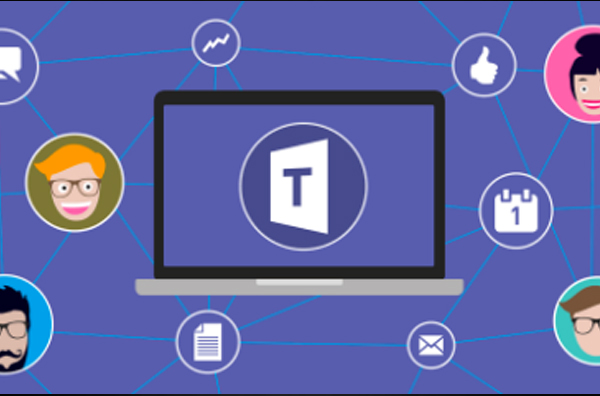
- Living and working with more energy
How would things look if you worked from a place of passion and strength? If you want to approach work energetically, using using your talents - look further at this online workshop.

- Online Teamwork
How do you work efficiently online? And how do you engender camaraderie and commitment? Find out in this training.
- Engage 'Em
The attitude of the team also determines its success. This training will give you tools to further increase team engagement.

Tips
- Welcome to the digital coffee machine
There are also tools like 'the digital coffee machine', a meeting place similar to the 'real' coffee machine, where you can, for example, hang out digitally at 9am and at 3pm if you like.
- Vision and objective
The vision/objective package supports your team in formulating a common interest, making plans and goals, setting priorities and formulating the team's identity.
Does this offering not address your challenge?
Then contact the CDC for customised training.“As a team, we wanted to translate the goals of shaping 2030 into our individual departmental plan and be better able to navigate this. We had already heard from a number of other teams that Lean principles can be very helpful here. Under the guidance of a Lean coach, we worked out our goals and embedded them in our work processes.”
offering
- Lean Introduction
Together with your team, you will be introduced to Lean principles and learn to set common goals and how to continuously improve as a team.

- Lean Customisation
Under the guidance of a trainer, you will learn as a team to continuously improve your processes.

- Manager of Virtual Teams
This training will help your virtual team skilfully and effectively shape, collaborate and achieve team objectives.

- Teamwork
Everything starts with clear goals and intended outcomes. In this training, you and your team will discover how to do that and start performing even better as a team.

- Stick to the plan
Could you use some help as a team to achieve your goals? Then have your team attend this training on how to increase discipline and maintain focus on team goals.

Tips
- Complete a vision canvas
The 5 Bold steps vision canvas is a perfect tool to align teams within your team. This canvas was created by David Sibbet of The Grove International.
- Collaboration
The collaboration programme will help you and your colleagues get to know each other better and work together on constructive cooperation and safety within the team.
Does this offering not address your challenge?
Then contact the CDC for customised training.“Our current team was formed several years ago from the merger of two smaller teams. The content handled by the teams was compatible, however, the teams had widely differing methods. These differences also led to intra-team conflicts on a number of occasions. Together with the Career Development Centre, we sought out an external team coach to help us further improve team cooperation.“
offering
- UT Strategy Game
A serious way to implement our UT Strategy Shaping2030 is with the UT Strategy Game. It brings UT's core values to life in a playful and interactive way. You play the game with 6 to 9 people, preferably from the same team. To end up with the most impact points, your strategic insight, entrepreneurship, and team player skills will be called upon. UT Strategy Game is there for anyone who values team development and wants to further integrate Shaping2030 into everyday work. If you want to plan a game session, please contact Elke van Bogget.
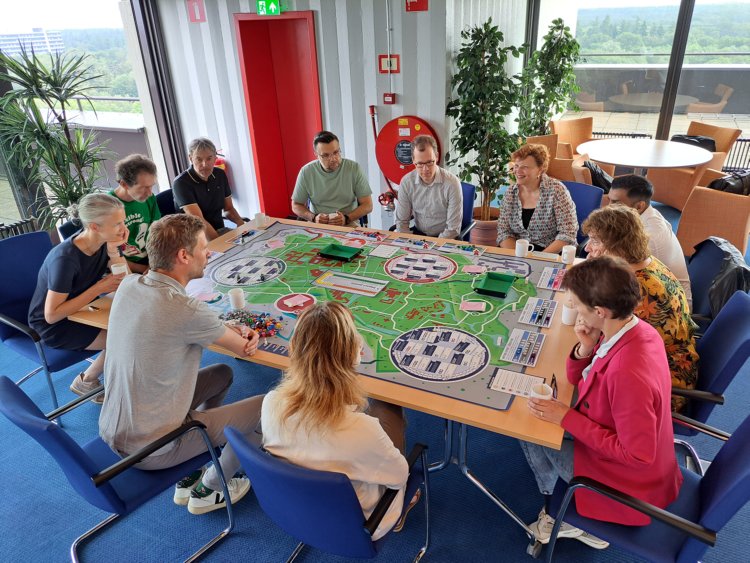
- Build your Intercultural Muscle
Operating more effectively in different cultural contexts and/or diverse teams.

- Microsoft 365 collaborating
Learn to work effectively with data management in, Outlook, conferencing in Teams and managing files in One Drive and Sharepoint.
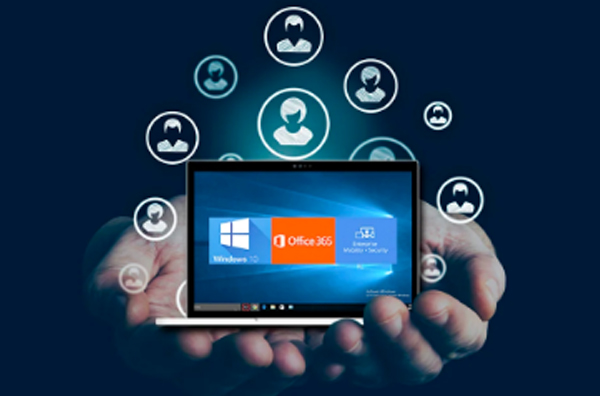
- Online teamwork
How can you work effectively online while keeping an eye on collegiality and commitment?
- Conflict management
- Teamwork
How do you create a cohesive team that is more than just a group of colleagues? In this training you will come to know the characteristics of a genuine team.
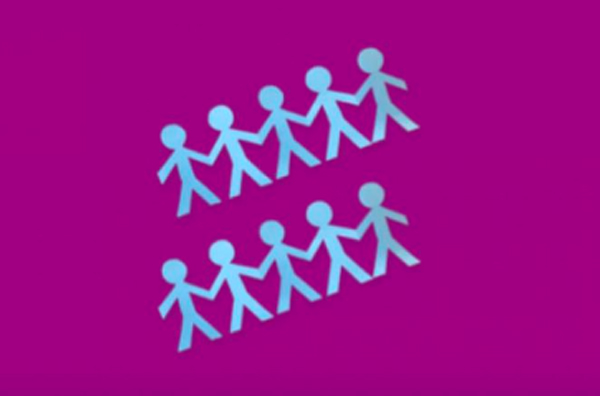
Tips
- Start the week off right with a communal start
Have a 'check in' of the week or day at a fixed time, a joint kick-off. Together, we review the week's objective and prioritisation, with any associated bottlenecks, and assign tasks.
- Four key moments
Celebrate work achievements, farewells or welcomes of colleagues, birthdays, anniversaries or other important moments. Especially now. Consider sending a present or delivering a piece of cake or drink to each member and toast digitally together.
Contact
Do you have questions about what is offered on this website or do you need personal advice or a tailor-made programme?
If so, please contact one of the employees of the CDC;


About the career development centre
The Career Development Centre (CDC) provides expertise, advice and a wide range of services in the area of professional and career development.
The CDC aims to support staff and managers in their individual and/or joint development so that they remain capable of realizing high-quality work in the continually fluctuating environment in which the UT operates.
The starting point for the CDC is that employees control their own career development and that managers recognize talent and stimulate and facilitate development.
Our motto, finally, is simple: dare to do well!
For ideas, comments or changes to this page, please email webteam-hr@utwente.nl
